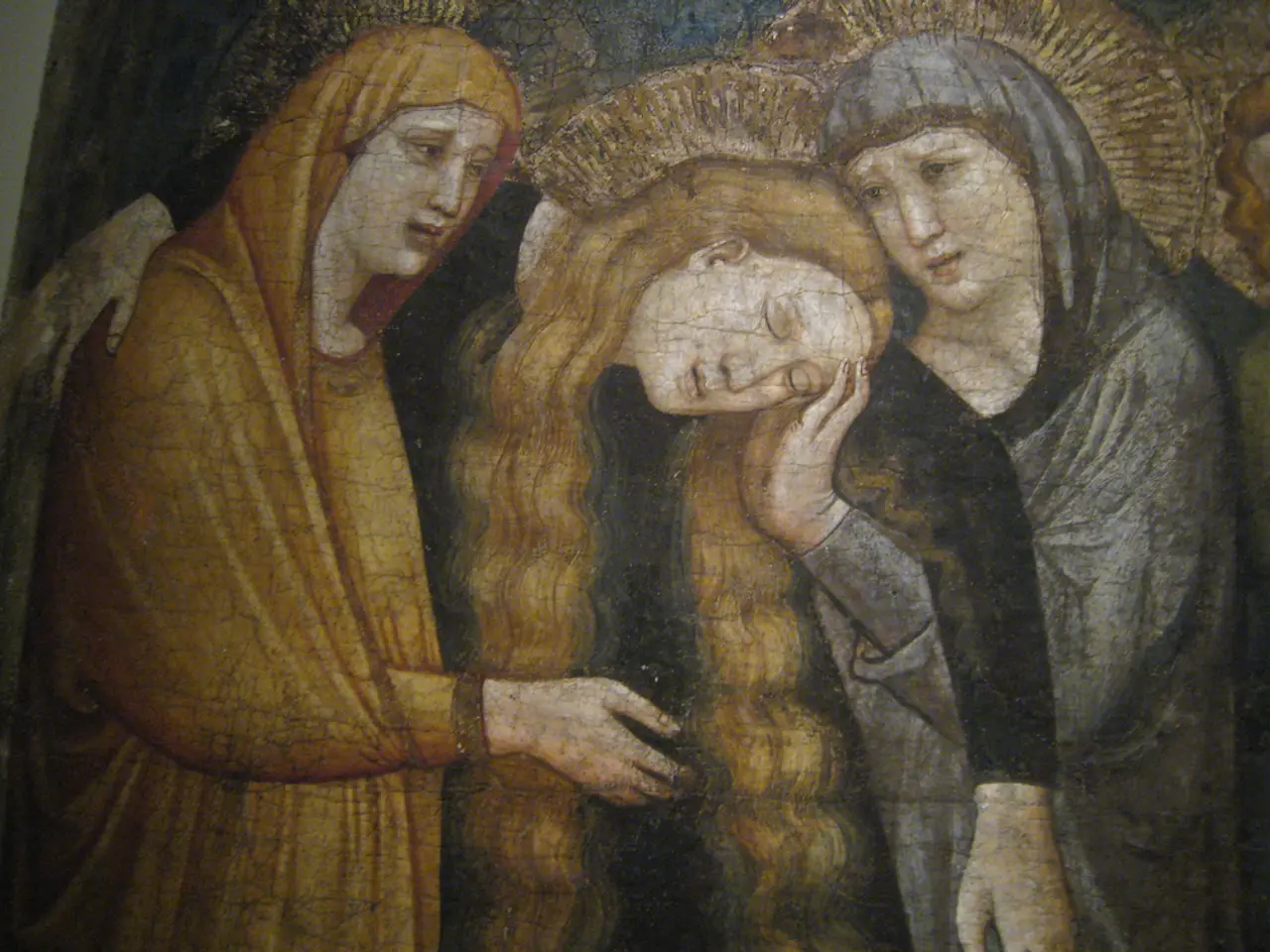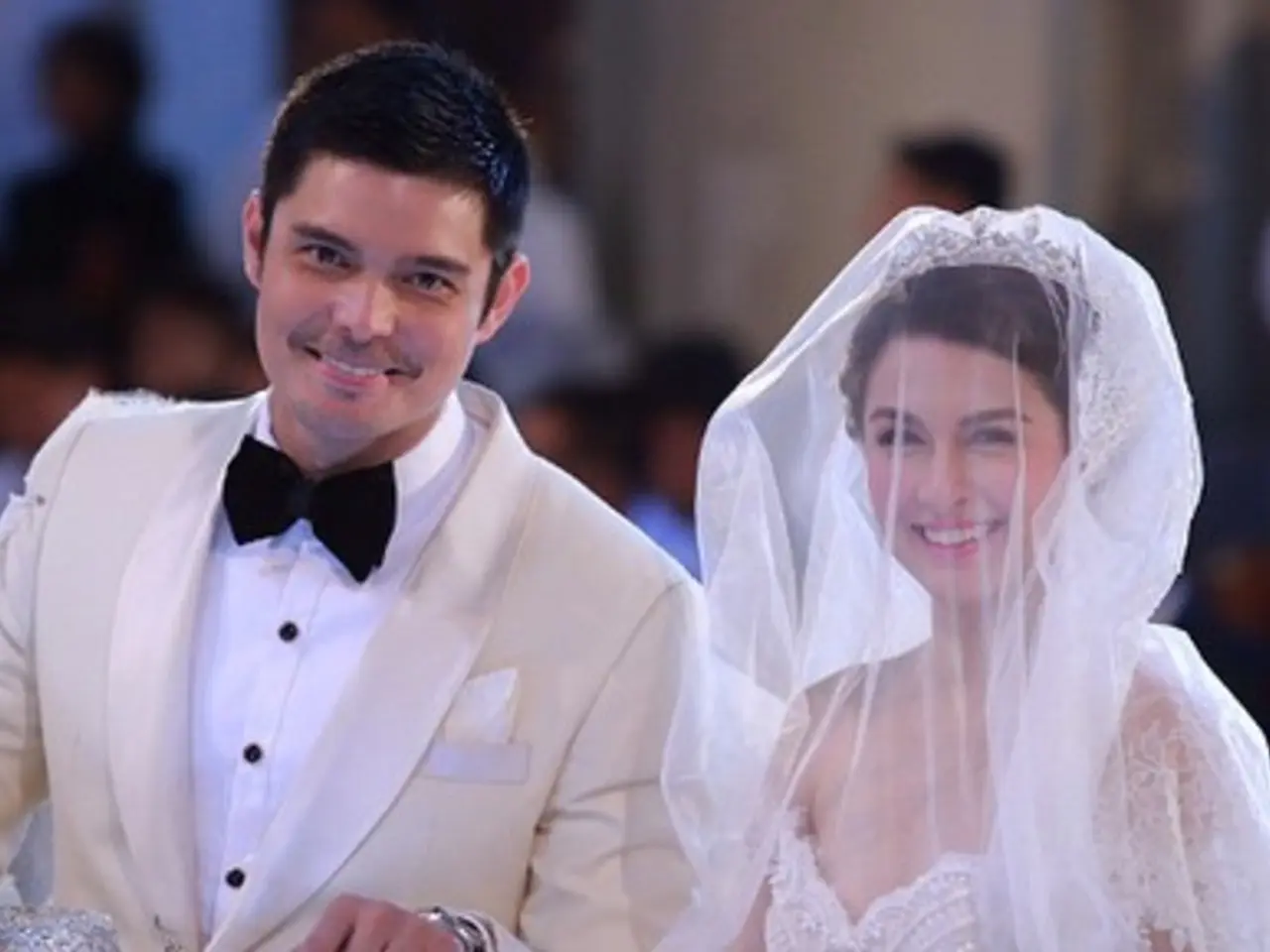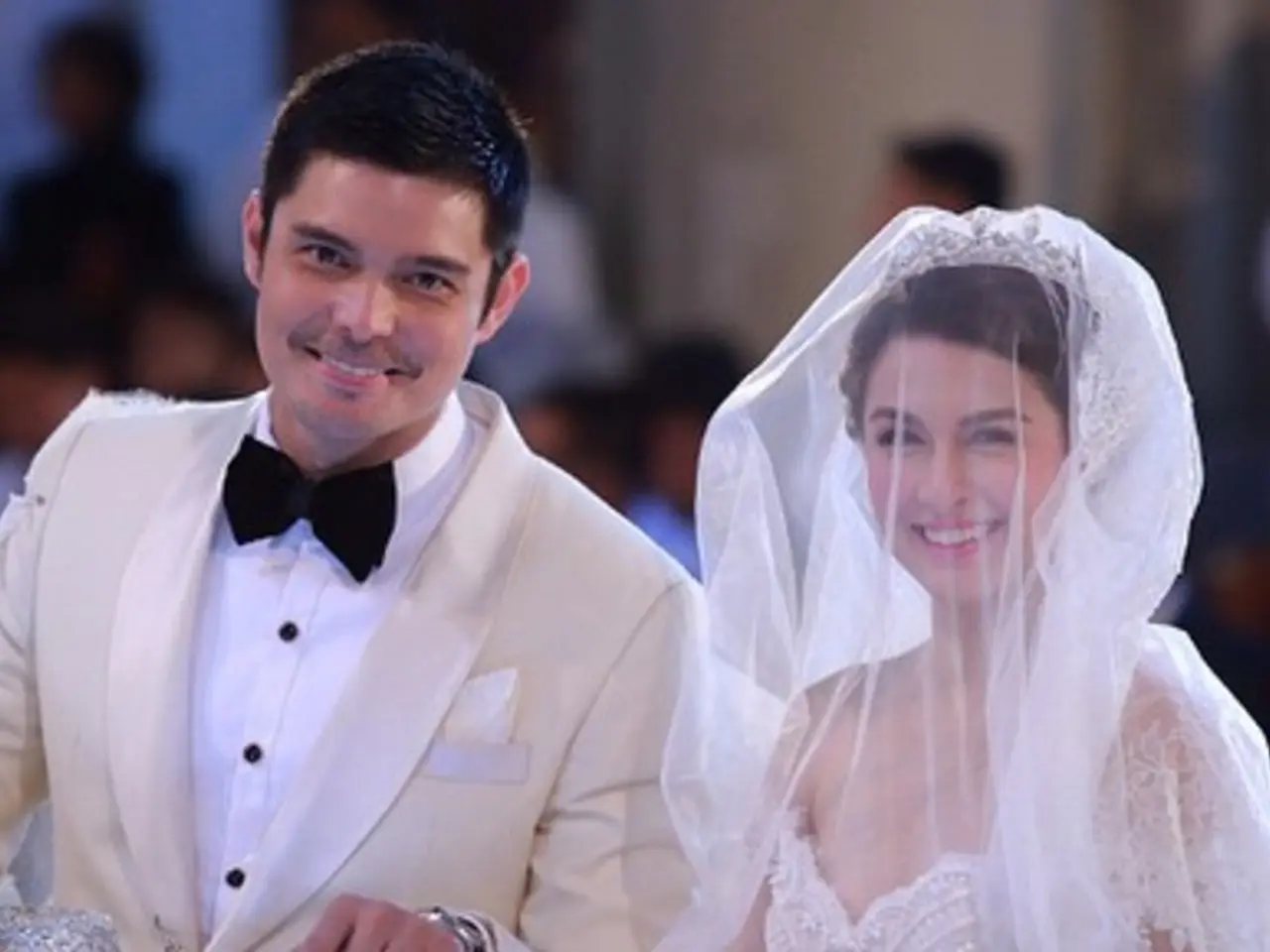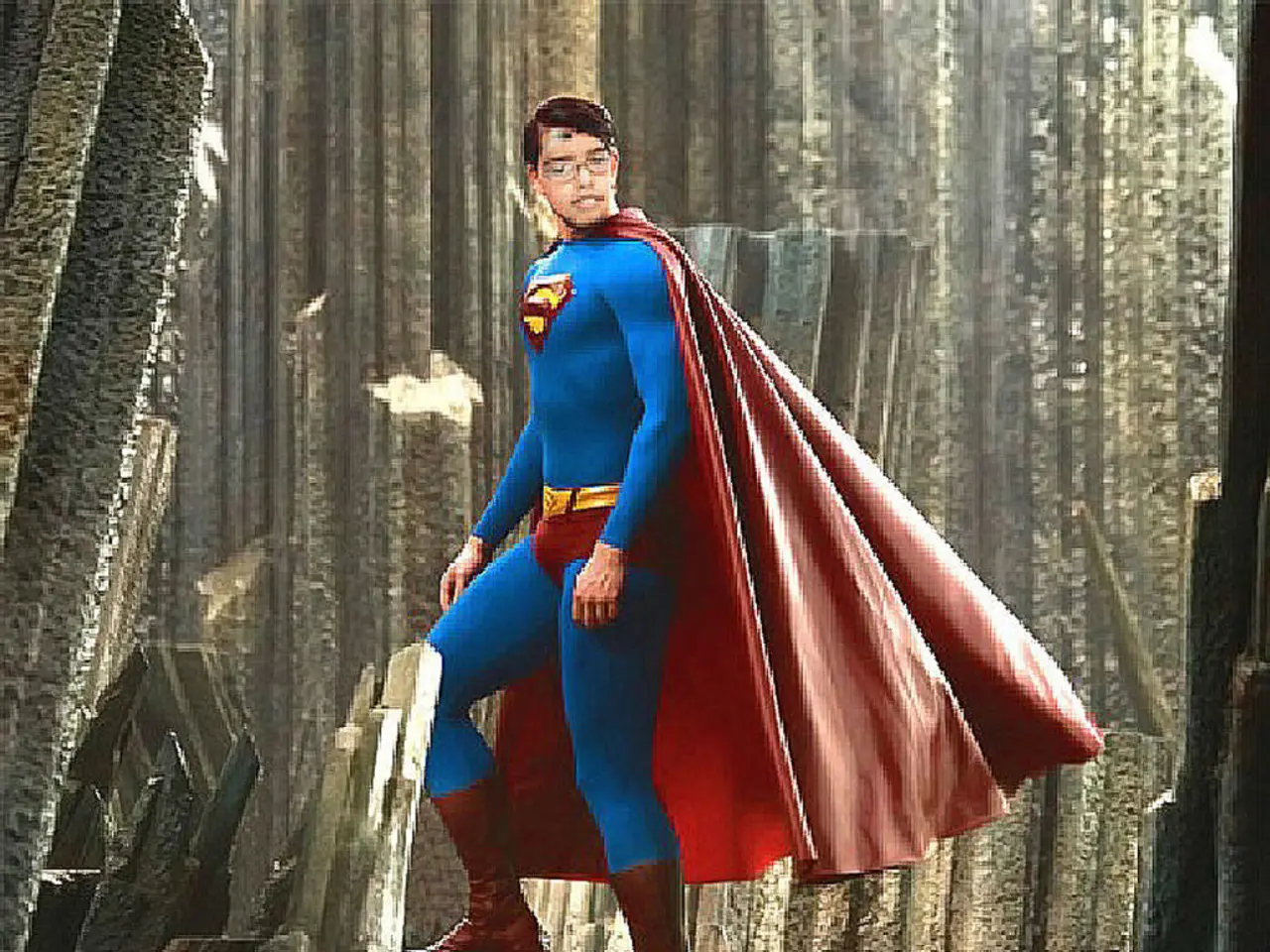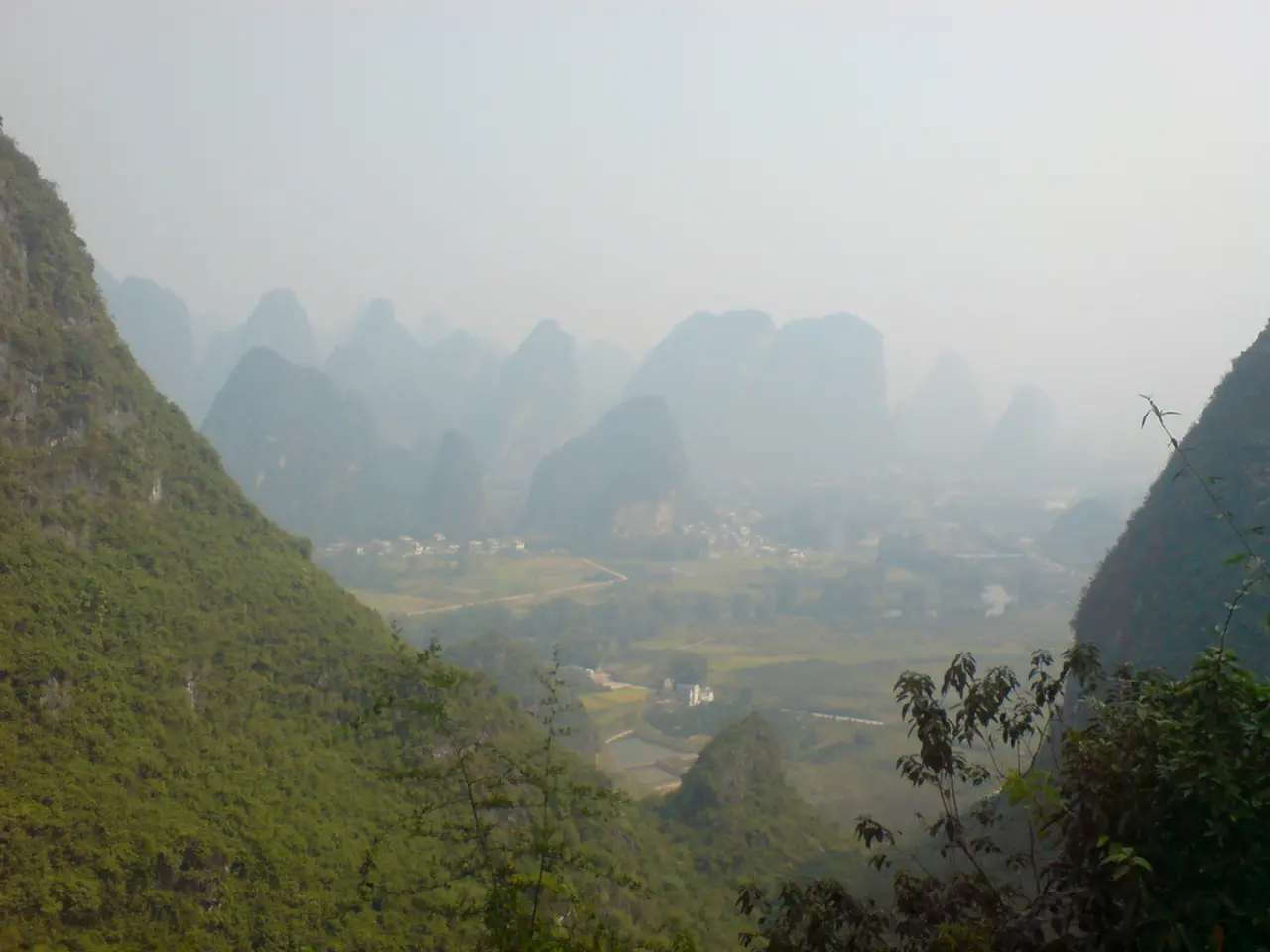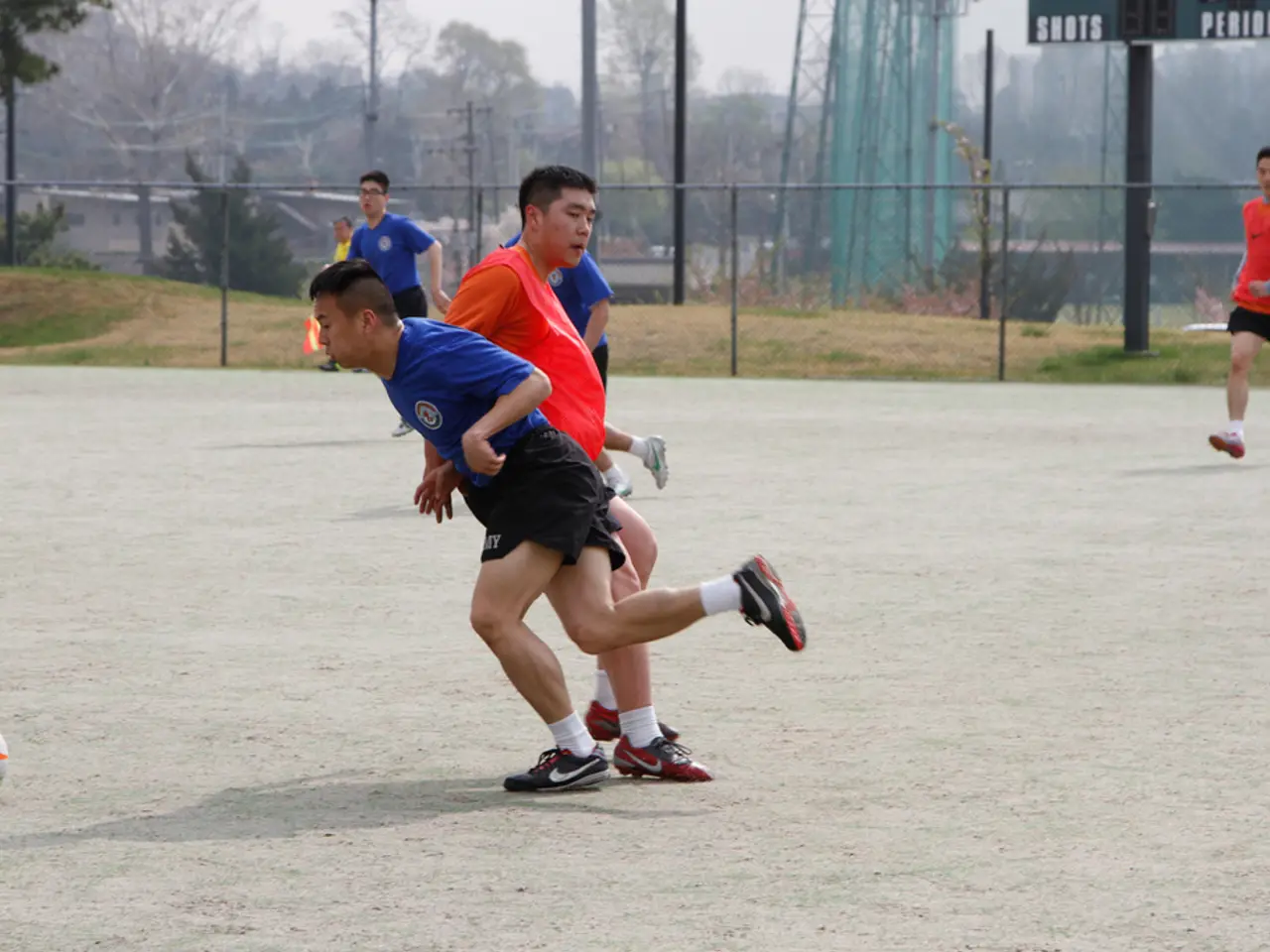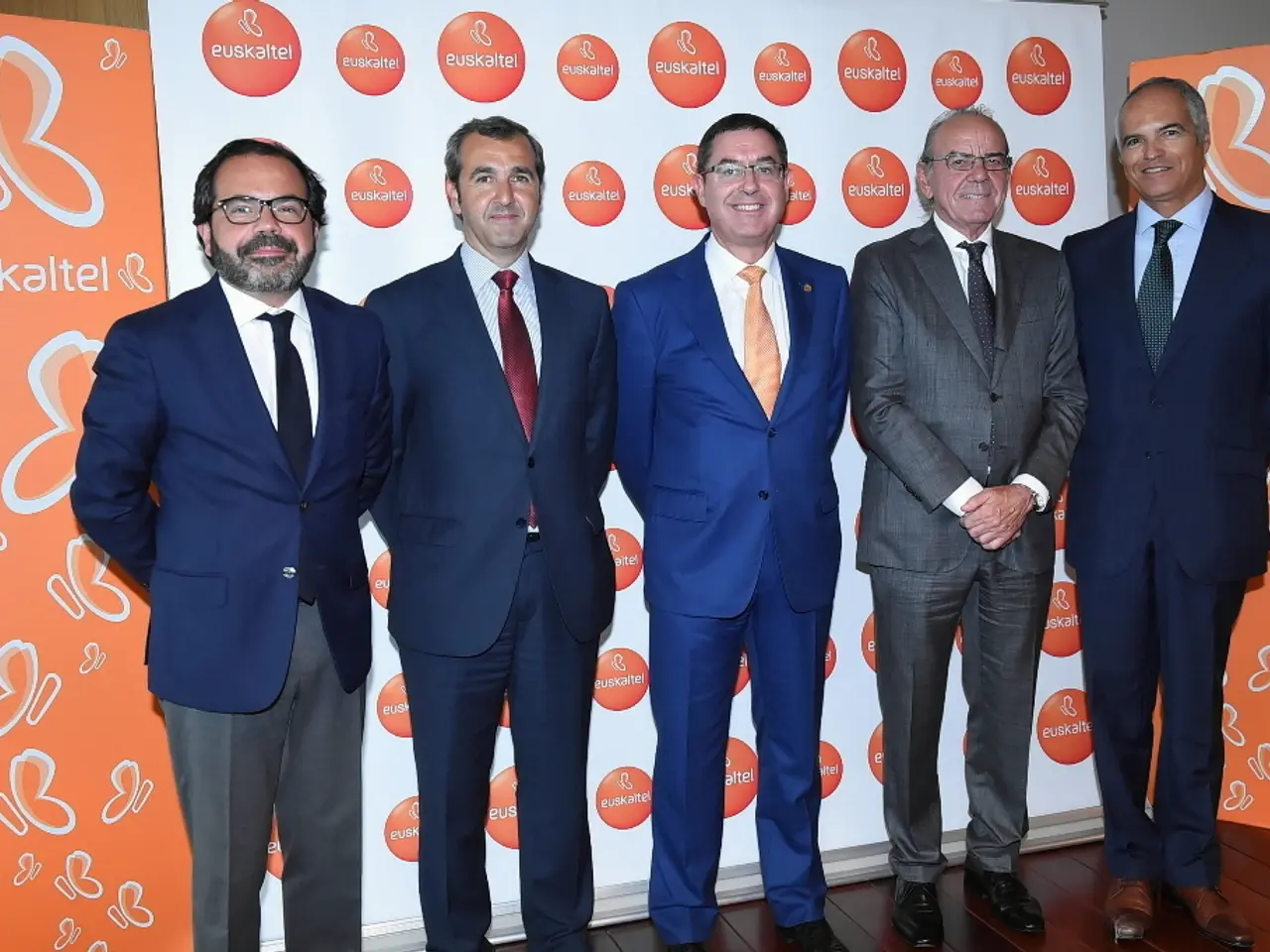Artistic Expression in Prison: Nadya Tolokonnikova Discusses Her Creative Journey Behind Bars
In the WAREHOUSE at The Geffen Contemporary at MOCA, Nadya Tolokonnikova, co-founder of Pussy Riot, has created a thought-provoking durational performance and installation called "Police State." This powerful artistic work confronts the realities of control, surveillance, and authoritarianism, making it a poignant critique of state repression and police surveillance mechanisms.
The installation, which replicates a Russian jail cell, immerses visitors in an eerie authoritarian state, with Tolokonnikova working at two tables – one for audio production and the other for various art supplies. Visitors observe her through security camera footage and peepholes, witnessing her creating music, art, or simply resting.
Tolokonnikova began viewing her prison time from 2012 to the end of 2013 as one of the longest durational performance pieces in art history, as a way to reclaim the time her government stole from her. This idea is reflected in the durational nature of the installation, with each day starting at 11 a.m. and running through the end of the workday, which varies.
The installation serves as a form of reclamation for Tolokonnikova and other Russian, Belarusian, and American prisoners whose work is included in the installation. Notable works by political prisoners, such as Asya Dudyaeva, Artem Kamardin, and Anya Bazhutova, are featured on the walls. Tolokonnikova also collaborates with anonymous prisoners in the United States and Belarus, using fabric produced by them in her installation.
"Police State" highlights the dangers of escalating state power and the erosion of civil liberties, a theme resonant amid ongoing political conflicts globally. The installation addresses the chilling realities of control and surveillance, directly engaging with themes relevant both in the US and abroad, particularly in contexts where governments exert authoritarian control over citizens.
Tolokonnikova's background as a Russian political dissident and Pussy Riot activist positions the work as a commentary on political repression under regimes like Vladimir Putin’s, while also drawing parallels to contemporary political conflicts and state actions in the US, especially concerning increased surveillance and policing.
The installation serves as part of a larger, joint project with the Art Action Foundation and the Artistic Freedom Initiative to archive and exhibit art by prisoners. The audio production table includes a deep subbase, prison sounds from Russian jails, ambient soundtrack, and old Russian lullabies. Tolokonnikova layers protest sounds into the installation's audio after the museum's closure amid anti-ICE protests and the deployment of the National Guard.
Tolokonnikova's Police State installation features an uplifting, almost church-like quality with religious music and Gregorian chants. One of the works in the installation says, "The last one here. I'm going to be the first one in heaven," and another features the Pussy Riot balaclava with the phrase, "They will not go through."
Tolokonnikova compares the current political climate in the United States to Russia in 2011 and 2012, expressing hope that Americans can defend their democracy. The installation was initially meant to be on display from June 5 to 14, but was extended due to the museum's closure amid anti-ICE protests and the deployment of the National Guard.
Visitors to the installation are encouraged to make their own conclusions and find room for interpretation. Tolokonnikova wants people to draw inspiration from Russia in 2011 and 2012, where citizens spoke up and used any instruments they had to challenge authoritarianism. Thus, the installation encourages people to speak up and use any instruments they have, drawing inspiration from both historical and contemporary struggles against authoritarianism.
- The installation, "Police State," at The Geffen Contemporary at MOCA, created by Nadya Tolokonnikova, delves into the realm of art, offering a critical commentary on control, surveillance, and authoritarianism in society.
- Tolokonnikova's installation replicates a Russian jail cell, inviting visitors to immerse themselves in an authoritarian state, witnessing the co-founder of Pussy Riot creating art, music, or simply resting.
- Art historical significance is attributed to Tolokonnikova's prison time, viewed as one of the longest durational performance pieces, a means to reclaim time lost due to governmental repression.
- The installation serves as a platform for reclamation, featuring works by various political prisoners, such as Asya Dudyaeva, Artem Kamardin, and Anya Bazhutova, from Russia, Belarus, and America.
- Tolokonnikova collaborates with anonymous prisoners in the United States and Belarus, incorporating their fabric into the installation.
- "Police State" addresses the dangers of escalating state power and the erosion of civil liberties, resonating amidst ongoing political conflicts globally.
- The installation engages with themes relevant in the US and abroad, particularly in contexts where governments exert authoritarian control over citizens.
- As a Russian political dissident and Pussy Riot activist, Tolokonnikova uses the installation to comment on political repression under regimes like Vladimir Putin’s, while also drawing parallels to contemporary political conflicts and state actions in the US.
- The installation is part of a larger, joint project with the Art Action Foundation and the Artistic Freedom Initiative, aiming to archive and exhibit art by prisoners.
- The audio production table in the installation includes prison sounds, an ambient soundtrack, old Russian lullabies, and protest sounds added after the museum's closure during anti-ICE protests and the deployment of the National Guard.
- The installation evokes an uplifting, almost church-like quality with religious music, Gregorian chants, and phrases like "The last one here. I'm going to be the first one in heaven."
- Tolokonnikova compares the current political climate in the United States to Russia in 2011 and 2012, expressing hope that Americans can defend their democracy.
- Visitors to the installation are encouraged to make their own conclusions and find room for interpretation, drawing inspiration from historical and contemporary struggles against authoritarianism.
- On the periphery of the installation, Tolokonnikova's "Police State" intersects with contemporary culture, influencing art, fashion-and-beauty, books, social-media, movies-and-tv, politics, pop-culture, and even sci-fi-and-fantasy discussions on general-news platforms.
- Amidst the ongoing dialogue surrounding crime-and-justice, accidents, sports, sports-betting, basketball, and ncaa-basketball, weather-forecasting, and entertainment news about celebrities and music, Tolokonnikova's "Police State" stands as a beacon, reminding us of the importance of our democratic liberties and the continued fight against authoritarianism.
